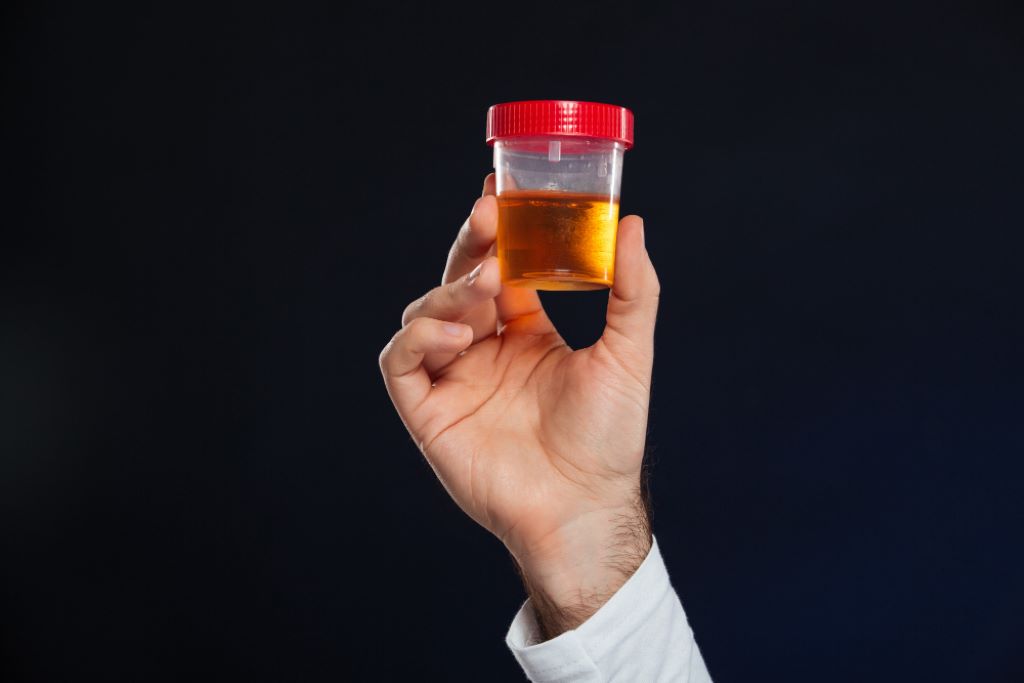The amount of alcohol you consume and the speed at which your body processes alcohol helps determine how long alcohol is in your system. As we drink alcohol, it enters the body through the mouth and then travels down the esophagus and into the stomach where the alcohol metabolism begins. The human body is great at processing alcohol, provided that the alcohol is not consumed so quickly that alcohol poisoning occurs. Between 90% and 98% of all alcohol you drink is metabolized and absorbed. The leftover percentage of alcohol is excreted through sweat, urine, vomit, and feces.
How Long Does Alcohol Stay In Your System?
Many factors influence alcohol processing such as biology, gender, body weight, medications or recreational drugs, food intake, medical health issues, and drinking pace.
The half-life of alcohol is about 4 to 5 hours, which means it takes 4 to 5 hours to eliminate half of the alcohol ingested from the bloodstream.
For most people, alcohol is absorbed into the system more quickly than it is metabolized.
For a person who weighs 150 pounds, one standard drink will increase their blood-alcohol concentration by about 0.02%,1 but the body can only remove about 0.016% per hour on average. Therefore, even if you drink just one drink per hour, your blood alcohol concentration (BAC) will simultaneously increase. If you drink more than one per hour, it shoots up quicker.
The human body metabolizes alcohol by oxidizing the ethanol to acetaldehyde. The acetaldehyde is broken down into acetic acid and later converted to carbon dioxide and water.
Alcohol is detected for a shorter time with some tests but can be in your system for up to three months in others.
How long does alcohol stay in your urine?
Alcohol can be detected in urine for three to five days through ethyl glucuronide (EtG) metabolite or 10 to 12 hours via the traditional method of testing.
How long does alcohol stay in your blood?
Alcohol can show up in a blood test for up to 12 hours.
When your alcohol is in your blood, it is quickly transported throughout the entire body, which is why alcohol impacts so many different body systems.
Factors That Affect Detection Time
The timetable for detecting alcohol in the body depends on elements such as metabolism, body mass, age, hydration level, physical activity, health conditions, and other factors, making it almost impossible to calculate an exact time alcohol will show up on a drug test. Some of those factors include:
Genetics
Family history plays a key role in the development of an alcohol use disorder. Similarly, it also determines how quickly the body processes and excretes alcohol as there is a genetic link.
Sex
Since women tend to have more body fat and less body water than men, alcohol tends to linger longer in their systems compared to men.
Body Fat
Once again the higher the fat content you have, the longer the alcohol will stay in your body.
Ethnicity
Research has shown that drinkers of East Asian ancestry are more likely to have trouble metabolizing alcohol since they don’t produce enough of a key enzyme that helps metabolize alcohol in the liver. Instead, a toxic byproduct of alcohol builds up in the blood and liver, dilates blood vessels, and causes a red flush (redness and heat) in the face and neck as well as headaches, dizziness, palpitations, and nausea. This reaction is funnily called an “Asian flush” or “Asian glow.”
Age
The older you get, your liver works more slowly, so it takes longer to excrete alcohol. As people get older, we also take medication that can affect liver function, slowing the process further.
Food Consumption
In Turkish mezzes with alcohol, one of the first things people eat are fatty foods like cheese with melons to protect the stomach lining. Having some food before drinking, and continuing to snack on things while drinking, will slow the absorption and reduce its impact, but prolong the detection period.
The longer alcohol stays in the stomach, the longer it takes to be absorbed and the slower the rate of intoxication.
Medications
Different medications can interfere with how long alcohol stays in the system and some may even enhance the effects and increase intoxication. Always be honest with your doctor about how much alcohol you consume. Medications known to interact with alcohol include:
- Anti-anxiety medications
- Antidepressants
- Antibiotics
- Allergy medications
- Diabetes medications
Use
How regularly and how fast you drink, as well as the alcohol content in your beverage, can all influence how long ethanol stays in your system. For example, if you binge drink—five or more drinks for men or four for women during a single drinking session—it can take many hours for the alcohol to completely clear from your system.
Your system can still have enough alcohol in it the next morning that you could fail a urine or blood test for driving under the influence. In this case, you would definitely have a problem trying to pass a test that is designed to detect the presence of any alcohol.
How to Get Alcohol Out of Your System
Regardless of how fast your body absorbs alcohol, it eliminates it at the average rate of 0.016 BAC per hour. Nothing you do will speed up the elimination process, including drinking coffee, drinking water, taking a shower, or even vomiting.
If you know that you are going to have to take a breath, blood, or urine test for the presence of alcohol in your system, the only way you can lower your blood alcohol content results is to delay taking the test as long as possible after your last drink, because only time will reduce your BAC.
